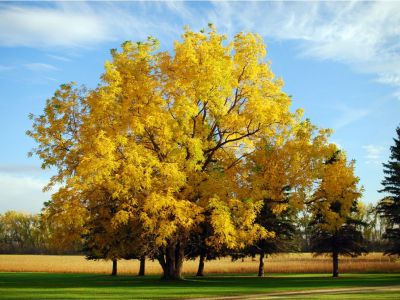Planting Trees Near Black Walnuts
You may have heard that nothing will grow near or under black walnut trees. Their roots exude juglone, a substance that is toxic to many plants. It prevents new seeds from germinating and also prevents existing trees from growing well. When you have a black walnut tree in your garden, any nearby plants that are sensitive to juglone will wither and often die. Symptoms of juglone poisoning include withering leaves and stunted growth. No juglone sensitive trees should be planted within 50 to 80 feet (15 to 24 meters) of a mature black walnut tree. That doesn’t mean your black walnut must stand alone in the back yard. Juglone tolerant trees grow perfectly normally in this situation and, the fact is, most trees fit into this category. You’ll want to plant trees resistant to juglone for black walnut companion trees.
Trees Next to Black Walnuts
Trees next to mature black walnuts are sure to experience the juglone roots produce. Although, walnut trees don’t achieve maturity and produce walnuts for around 15 years. If you are just planting a walnut tree, you have less to worry about. Immature walnut trees produce less juglone than mature trees and very young trees produce none at all. That means that you can plant short-lived trees of any kind as initial black walnut companions.
Trees Resistant to Juglone
Once your black walnut matures, you’ll need to replace the short-lived trees nearby with trees resistant to juglone. There are quite a few juglone tolerant trees you can plant near your black walnut. If you want to plant fruit trees try quince, peach, nectarine, persimmon, cherry, or plum. All are great companion trees to use. If you want taller trees go for any tree in the oak or hickory families. Other great choices when you are planting trees near black walnut include black locust, catalpa, Eastern redbud, hackberry, Canadian hemlock, most maples, pagoda dogwood, poplar, and red cedar.
